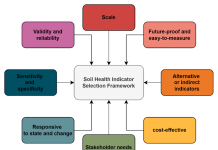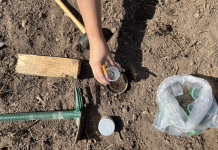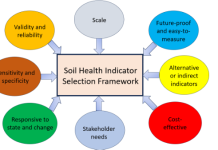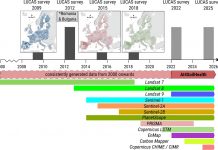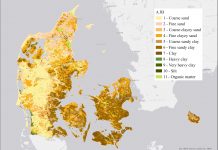Open Access Government produces compelling and informative news, publications, eBooks, and academic research articles for the public and private sector looking at health, diseases & conditions, workplace, research & innovation, digital transformation, government policy, environment, agriculture, energy, transport and more.
Home 2025
Archives
AI4SoilHealth Science: Revolutionising soil health monitoring
Seasoned experts explain here the revolutionising of soil health monitoring through the science of the AI4SoilHealth project.
The dynamics of soil health
Thomas Gumbricht from Stockholm University and xSpectre, with Sonia Meller from Digit Soil, discuss what we need to know about understanding the dynamics of soil health.
Developing a robust soil health indicator selection framework
The EU Soil Health Monitoring Law proposes twelve main soil indicators for reporting soil health. There is a need to ensure that these indicators and other subsequent measures are robust for their purpose.
Soil health monitoring through iterative analysis of soil’s past, present, and future
Tom Hengl, Director of the OpenGeoHub foundation, discusses the importance of soil health monitoring and how the AI4SoilHealth project is supporting this endeavor.
Revolutionizing agriculture: Unleashing the potential of AI and big data in soil health monitoring
In a recent interview, our editors delved into the world of soil health monitoring and the transformative role played by artificial intelligence (AI), big data, and machine learning, with Mogens H. Greve, Professor and Head of the Soil Section at the Institute of Agroecology, Aarhus University.
Understanding soil and its crucial role to life with the Department of Agroecology
The Department of Agroecology at Aarhus University is an internationally recognized research institution dealing with agro-ecosystems and creates, develops and translates cutting-edge knowledge to advance the bioeconomy of the community, both in Denmark and abroad.

